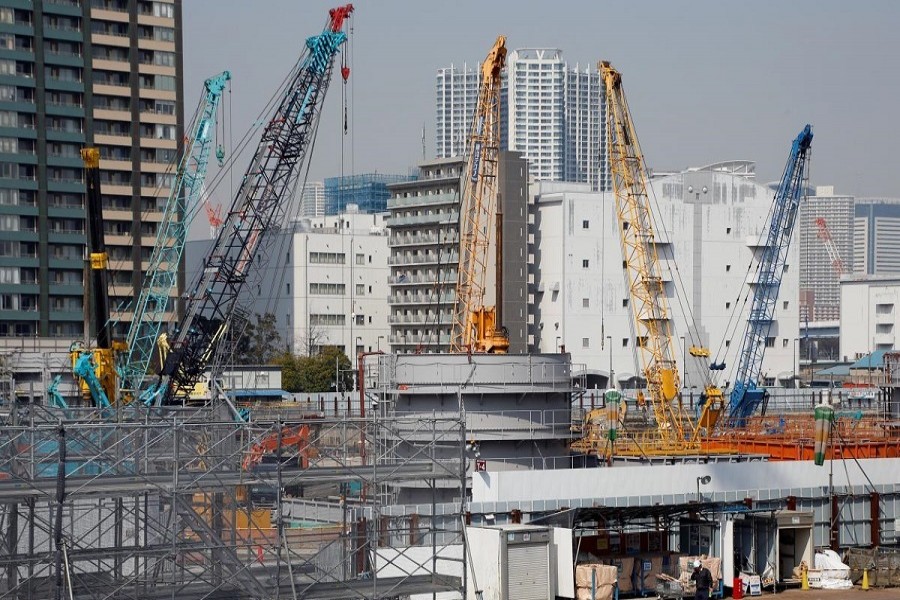The Japanese government left unchanged its assessment that the economy is gradually recovering, suggesting a recent growth streak is likely to continue as consumers spend more, exports rise and companies increase investment.
The government did change the wording of its assessment for consumer prices in March to say they are gradually rising. Last month, the government said consumer prices were flat.
But this does not amount to an upgrade, partly because the increase is slight and could be temporary, a Cabinet Office official said, highlighting the Bank of Japan’s difficulty in getting inflation to accelerate.
“Japan’s economy is gradually recovering,” the Cabinet Office said in its monthly economic report for March on Friday. That was unchanged from the previous month.
In January, consumer prices excluding both fresh food and energy, known as core-core prices, rose an annual 0.4 percent. This is an improvement from June 2017, when core-core prices were flat, but is still well below the BOJ’s 2 per cent target.
The government left unchanged its assessment that consumer spending is “recovering” as spending on mobile phones and home electronics remains firm.
The government said capital expenditure is gradually expanding, unchanged from the previous month, as semiconductor makers increase investment to meet demand and other manufacturers invest in industrial robots, the report showed.
Japan’s economic growth in the fourth quarter was revised up due to rising capital expenditure and inventories.
The economy has grown for eight straight quarters, the longest continuous expansion since a 12-quarter stretch between April-June 1986 and January-March 1989 around the height of Japan’s notorious economic bubble.
Despite this steady growth, the Bank of Japan is making very slow progress in meeting a 2 percent inflation target.
A risk to the outlook, which was not mentioned in the report, is the revelation of a cover-up of suspected cronyism that is eroding support for Prime Minister Shinzo Abe.
Some opposition lawmakers are calling on Abe and Finance Minister Taro Aso to resign after Aso admitted that finance ministry employees forged documents related to the sale of government land.
According to Reuters, critics say a person with ties to the prime minister’s wife used this relationship to buy the land at a discount. Abe has repeatedly denied that he or his wife were involved.
Abe took office in late 2012 with a bold plan to shake off 15 years of deflation and sub-par growth. In the past few years, his labor reforms, corporate tax breaks and changes to other regulations have started to bear fruit.
Abe so far has retained enough support to remain prime minister, but if this changes then investors could start to question whether the policies Abe put in place would continue.


